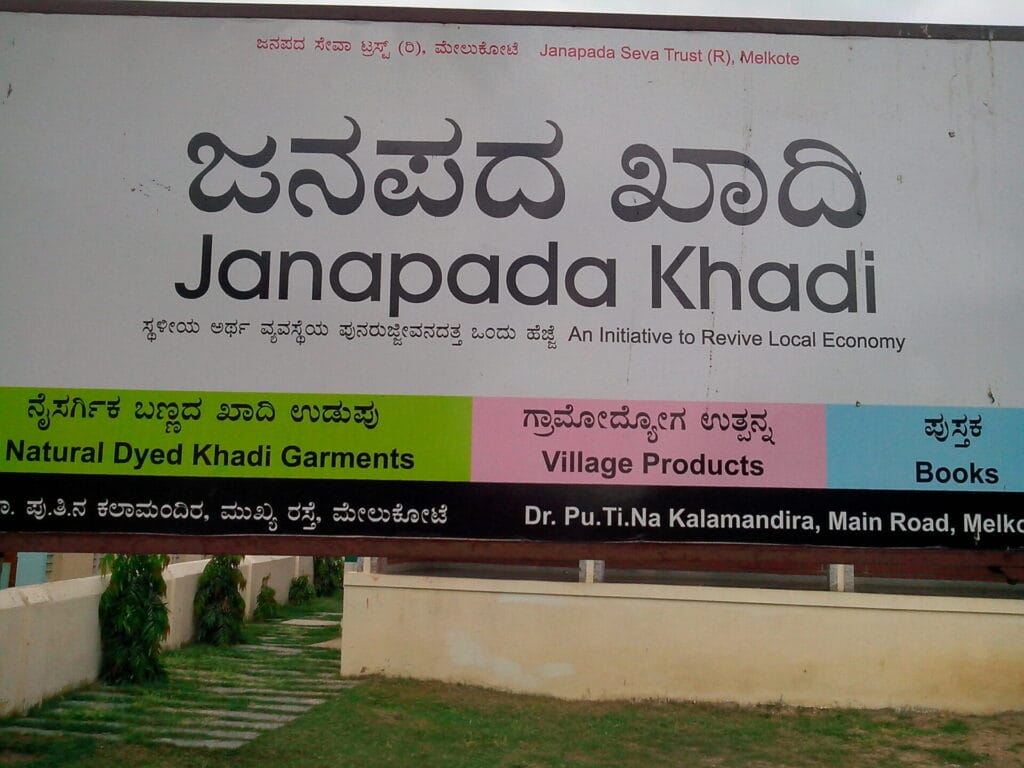The Karnataka government introduced new rules on the use of Kannada on signboards in Bengaluru last week. The move follows protests by the group Kannada Rakshana Vedike (KRV), on December 27th, during which shops without Kannada signboards were vandalised. But this is not the first time that Kannada activists have demanded Kannada signage nor is it the first time that the government has tried introducing rules regarding Kannada.
Signage rules in 2008
Activists promoting the Kannada language have repeatedly noted that the majority of Karnataka speak, read and write in Kannada and the people of the state deserve signage in the language. Kannada is the first language or mother tongue for 44.5% of Bengaluru’s population. But the city’s businesses do not always follow this rule.
Read more: Hindi vs Kannada debate in Bengaluru: Where is it heading?
In 2008, the state government included a rule under the Karnataka Shops and Commercial Establishments Act (1963) that mandated the use of Kannada in signboards. The rule (24A) emphasised the need to make Kannada prominent on the signboard:
“The name Board of every establishment shall be in Kannada and wherever other languages are also used, the versions in such other languages shall be below the Kannada version. The name Board in Kannada version shall be written more predominantly by providing more space than for other languages, if any”. The amended rules included a fine for violation of the rules.
The rules were challenged by the telecom company Vodafone Essar South and struck down by the Karnataka High Court (HC) because of technical issues. The Shops and Commercial Establishments Act was a labour law passed to protect workers’ rights in businesses. In its 2014 judgement, the High Court noted that the Kannada rule passed with the intention to promote Kannada had no place in the Act. The Supreme Court upheld the High Court order.
Despite the rule being struck down, the Bruhat Bengaluru Mahanagara Palike (BBMP) continued to issue notices to establishments trying to enforce the Kannada rule. In 2019, the civic body removed name boards and signs in English from shops, malls and restaurants. They also threatened to revoke trade licenses of businesses that did not introduce Kannada signage. These orders were stayed by the Karnataka High Court again.
A new law follows
However, Kannada groups have consistently asked for signage in the language in the city. In 2018, the Kannada Development Authority began to draft new legislation to promote Kannada. In 2022, the state assembly and legislative council passed The Kannada Language Comprehensive Development Act, 2022.
Section 17 (6) of this Act is related to signage: The upper half portion of boards displaying the names of Commercial, Industrial and Business Undertakings, Trusts, Counselling Centre’s, Hospitals, Laboratories, Amusement Centres and Hotels etc., functioning with the approval and sanction of Government or local authorities, shall be in Kannada and lower half can be in any other language.”
Despite the Act being passed in 2022, Kannada activists were unhappy because the signage rule was not being implemented in Bengaluru.
On December 28, 2023, the rule Kannada Rakshana Vedike launched a protest asking for the rule to be implemented. The protest turned violent in some parts of the city. Protestors tore down signs from malls, restaurants and shops across the city. Several KRV activists, including the state president Narayana Gowda were arrested.
via @KCShekarGowda
Sixty percent rule
While Chief Minister Siddaramaiah said that violent protests would not be tolerated, he has expressed support to the sentiment. On January 6th, the State Cabinet passed an ordinance, amending the 17(6) rule. It would now be mandatory to make 60% of the signage in Kannada, as opposed to only the upper half of the board.
Businesses have until February 2024 to implement the new rules at their establishments. The penalties for not following the rule are, as per the Act, fines of Rs 5,000 and Rs 10,000 for the first and second offence, respectively, and fine of Rs 20,000 for every subsequent offence and cancellation of the trade license.
So far, no legal challenges have been issued to the new rules.
Part 2 of this series will focus on the history of the Kannada movement in Bengaluru
